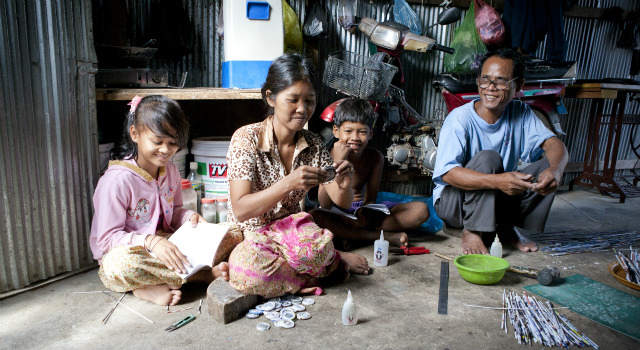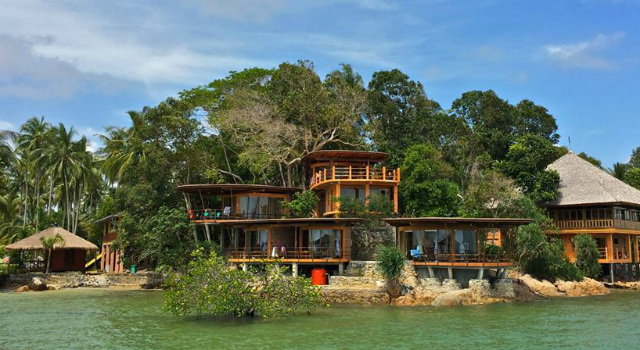As we enter 2016, Wild Asia is excited to begin reflecting on its 10-year journey of identifying leaders responsible for tourism. For the past decade the Malaysian-based sustainability experts have been engaging travel and tourism businesses from all corners of Asia, benchmarking them against global standards, and providing an international platform to share best practice. These businesses of all shapes and sizes are doing inspirational things in their destinations to benefit the lives of local people and the natural environment.
The Awesome Potential of Educational Travel
At Wild Asia, we continue to be excited by something all these kind of tourism offerings have in common – the awesome learning opportunities we can take away from meaningful travel experiences. Education in tourism is something we’re passionate about. Our Awards seek to educate business-to-business by promoting best practices from within the industry.
Your Role
But what about travelers’ role in educational travel? Tourism is one of the world’s largest industries; it’s not just businesses like those in our Awards who have the responsibility to use travel to make a difference, individuals play a part too. As educators, we thought you might be interested to know how you can play a vital role in promoting ethical learning journeys through your service and study trips overseas…
1. Learning Service – not Service Learning
Service learning or volunteering in a developing country is something many schools wish to incorporate into their overseas trips. Whilst being an opportunity for visiting students to appreciate their lot and practice ‘giving back’, there’s now plenty of evidence to suggest these kind of activities can be doing more harm than good.
Claire Bennett, Learning Service movement, says: “Lots of teachers approach us saying that they feel pressure to design international service learning trips for their students that can be completed in a few days, have the “feel good” factor, and have a positive impact on local communities. It’s basically an impossible task and they know it. We advise schools to take their students on a “learning service” trip instead. This is a trip that puts the learning first and emphasizes the importance of understanding an issue, place, or culture before leaping in to offer help.”
“Learning service trips enable students to critically engage with the complexity of international development, the historical and political context of place, and topics such as privilege and power. This way, service is not a one-off event that gets completed and ticked off a list, but is a lifelong commitment to engage and act in the world as responsible global citizens. The impact on the student is richer and more profound, and the impact on the world is more sustained and effective than a week-long project building a well (that no one asked for) or painting a school (that lacks teachers) can ever be.”
PEPY Tours in Cambodia (2010 Finalist for Tour Operator) are advocates of the ‘learn first’ approach and coordinate ethical educational tours as an alternative to traditional volunteering experiences. Their student trips connect you to develop leaders and encourage you to consider your role as a change-maker and global citizen.
2. Vote with your money – responsible businesses and spending
Buying from locally-owned businesses or social enterprises (businesses designed for social purposes) ensures you’re investing in the local economy. Supporting responsible business is a much more empowering and sustainable approach than dishing out handouts.
Andaman Discoveries in Thailand (2014 Finalist for Best in Cultural Preservation) works with the marginalized Moken community, and rather than promoting a culture of ‘helping’ and giving things away, has supported them to establish and manage their own tourism services.
3. Responsible giving – charity
Picking partner charities or NGOs in the destinations you visit can be overwhelming. It’s challenging to know who to support for various reasons – there are so many and who do you trust? Contributing to a transparent and strategic organization makes sure your fundraising efforts go where they’re needed. Pick projects that invest time and energy into local people, rather than focus on things. What use is donating school uniforms if there are no trained teachers at the school?
PEPY Tours (as mentioned above) are open about the early ‘mistakes’ they made in development (such as building schools with no teachers) and transparently communicate the lessons they’ve learned in the charity world (invest time in and give skills to local people). By traveling with them, students explore the complexities of development and discover how to live, travel, and give responsibly.
4. Cultural etiquette – be prepared
Your in-destination tour partner should provide you with thorough pre-departure information to help you plan and pack for your trip. Read these carefully and communicate it with the students under your care. When we travel we should always respect local customs and expected norms. Turning up to a rural, conservative community with a bag full of hot pants isn’t going to help build initial relationships and will leave everyone feeling uncomfortable!
5. Navigating begging
You’ve just landed in a hectic foreign land and are faced with the begging dilemma; a cute kid is holding our their hands and asking for money – what do you do? There is no right or wrong answer I’m afraid; I’ll leave it to the experts here…
The ChildSafe Network (2014 Winner for Most Inspiring Responsible Tourism Initiative) advise:
By buying from these children or giving them money, you help maintain this unsafe daily working life, preventing them from attending school or training, and trapping them in a cycle of poverty. You can help by supporting organizations that work directly with these children and that also support their family members to find employment.

ChildSafe income generation programme
6. Environmental credentials
As we travel we can fall guilty of consuming more, and doing it in destinations with less resources or capacity. It goes without saying the potential negative environmental impact is huge. As well as playing your part in reducing consumption of energy and water along the way, supporting businesses deeply committed to environmental stewardship is a great place to start.
LooLa Adventure Resort in Indonesia (2012 Winner for Most Inspiring Responsible Tourism Operator) strives to make its operations more environmentally friendly whilst providing exciting outdoor adventure and education to schools. When selecting your in-country travel partner ask them about their commitment to resource efficiency, wildlife and conservation, and continuous improvement.

LooLa Adventure resort
7. Connect with your destination – wider learning
Preparing your students and yourself before your study trip, through background reading, will help maximize your time on tour. As well as providing the foundations for your learning activities, it will also help avoid culture shock. Time is of the essence and a basic understanding of your destination before you arrive will help you get the most out of your adventure.
8. Reflections as you travel
The mission of most study trips is to learn and experience new things, as well as broaden horizons, push boundaries, and build confidence. It’s important to schedule time throughout your trip, as well as when you get home, to reflect on what your group has learned, and found challenging, and life-changing.



